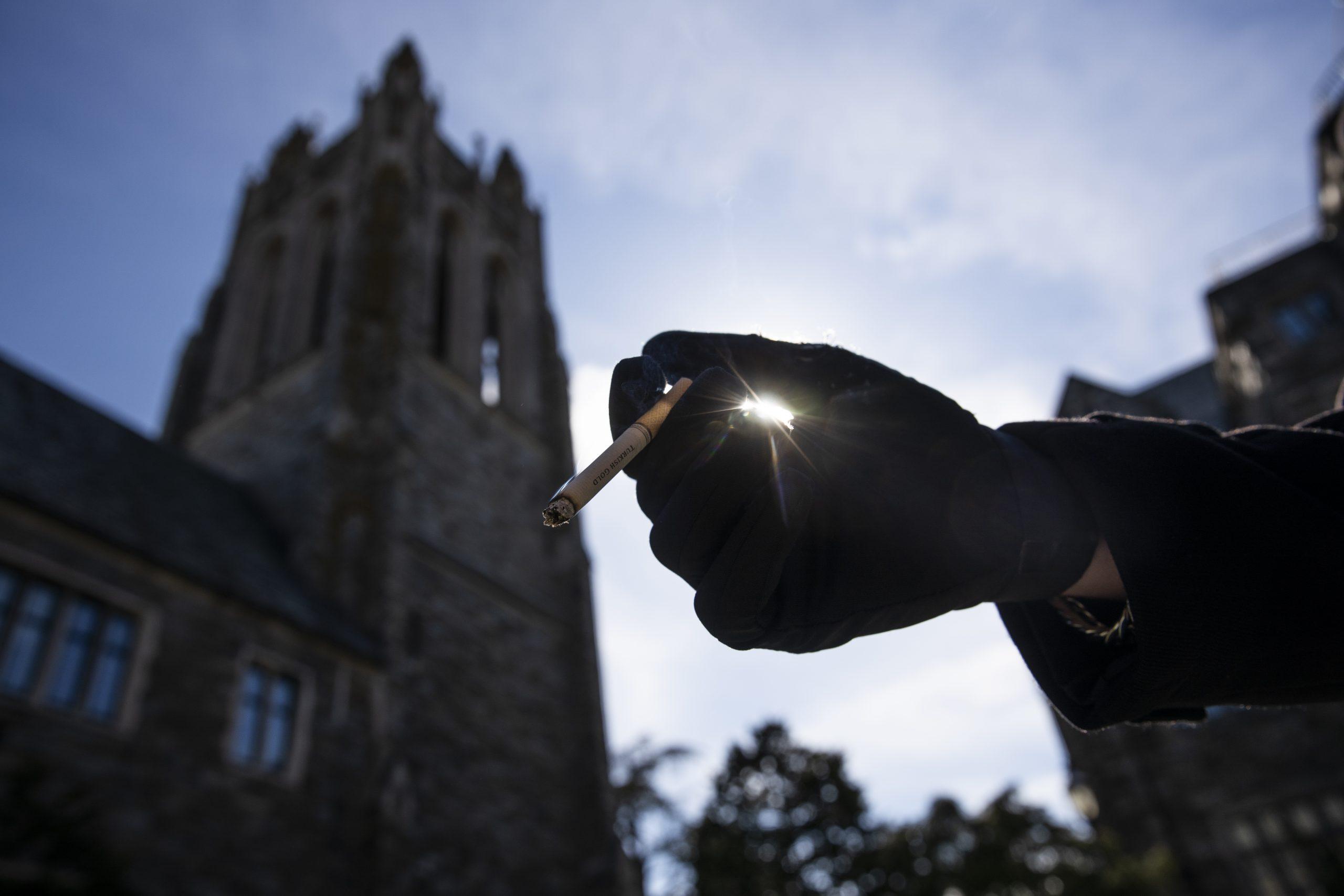St. Joe’s hosted seven smoke-free campus focus groups in early March as the next step toward a smoke-free campus this year.
Five of the groups, which took place March 1 to March 5, were geared toward students and two toward employees.
A Feb. 24 university announcement from Zenobia Hargust, chief Human Resources officer and Cary Anderson, Ed.D., associate provost and vice president for Student Life, indicated that the focus groups were part of an initiative to make the university smoke free in 2021.
“These focus groups will explore challenges, opportunities and helpful resources associated with this campus change,” Hargust and Anderson said in the announcement.
Last fall, a series of surveys was sent out to students and employees regarding a smoke-free campus. Out of 556 respondents, 95% of employees and 78% of students who responded said they were in “support” or are “neutral” to pursuing a smoke-free campus, according to the Feb. 24 announcement. Of the respondents, 46 said they smoke or vape on campus.
The idea of a smoke-free campus has been in the works for several years, wrote Public Relations Manager Gabriella Lacherza in response to written questions from The Hawk that she attributed to Hargust and Anderson.
“After successfully partnering with other local institutions, the Philadelphia Department of Public Health and the Clean Air Council reached out to St. Joe’s to offer support for transitioning to a smoke-free campus,” Lacherza said. “With our increased focus on the health and wellness of our constituents, the timing seemed right for us to approach this change.”
The goal of the focus groups, Lacherza said, was to gain feedback and perspective from students and employees on how to best transition to a smoke-free campus.
The university attempted to limit smoking on campus in the past but not without controversy each time. In response to the recommendations of a Smoke-free Workspace Taskforce convened in 1990, the university banned smoking in all campus buildings in 1991. The university again began a review of its campus smoking policy in 2008, issuing a policy in 2009 that banned smoking on university athletic fields and at shuttle stops. It also limited smoking to 15 designated areas on campus.
Today, smoke-free campuses have become more normalized across the U.S. According to the Centers for Disease Control and Prevention (CDC), at least 2,082 college campuses in the U.S. had smoke-free policies as of November 2017.
Although the use of cigarettes has become less popular among college students, Nene Okunna, Ph.D., assistant professor of health studies, said she sees a new problem: vaping.
“Research shows that some of these e-cigarettes/vapes provide as much nicotine as tobacco cigarettes,” Okunna wrote in response to written questions from The Hawk. “Many young people have embraced this as an alternative to tobacco cigarettes.”
Okunna said she believes that the focus groups the university hosted earlier this month will be informative.
“It would help explain the ‘whys’ behind the data collected in the Smoke-Free Campus Initiative survey,” Okunna said. “It also provides an opportunity to explain the smoke-free campus policy to the different stakeholders and answer any questions they may have.”
But Okunna said depending on the data collected, an “aggressive public awareness campaign” may be needed to “educate the university community of the benefits of a smoke-free campus.”
One student smoker, who asked to remain anonymous, said these focus groups can only do so much to combat the college smoking problem.
“Most of these focus groups are only going to work if the person wants to lay off nicotine,” the student said. “If they’re not willing, it probably won’t work.”
The student said more direct action from the university is necessary for those who are not willing to give up smoking or vaping.
“If an RA sees a Juul or a vape, they can confiscate that,” the student said. “It’ll definitely make kids have to rely on it less.”
The student said COVID-19 fears may help some students to stop smoking or vaping. Since the virus can target the lungs, it could “make people a little more scared” to continue smoking, the student said.
According to the CDC, smoking increases the risk for severe illness from the COVID-19 virus.
When asked to clarify the 2021 implementation timeline from the Feb. 24 announcement, Lacherza said that the final date depends on a number of factors.
“Following the completion of the recent survey and the campus community focus groups, the working group will share draft policy changes to respective advisory and governing bodies for further review and finalization,” Lacherza said. “The time required for additional review will inform the timeline to completion.”









































